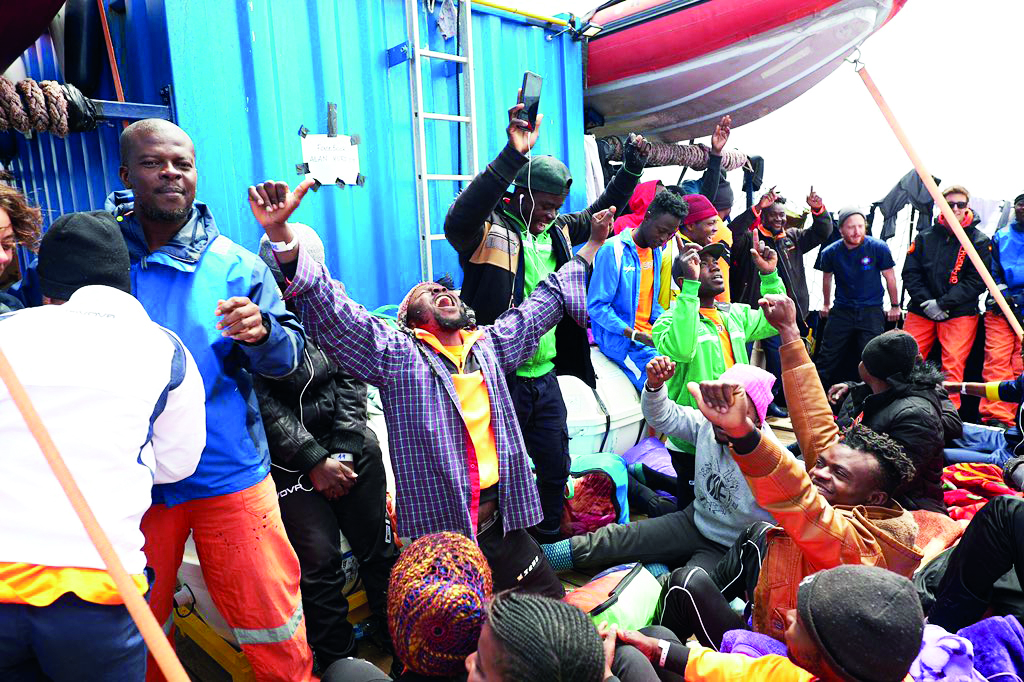Analysis
EU deal finds homes for 64 migrants trapped on the Alan Kurdi rescue ship
Dozens of men, women and children huddled on the ships’ bridges in the cold and rain for nearly two weeks while Europe politicized its humanitarian obligations. Not exactly a shining example of the solidarity which is supposed to be a fundamental value of the European Union.

In the end, France, Germany, Portugal and Luxembourg will be the four countries who will each receive some of the 64 migrants on the Alan Kurdi. Maltese Prime Minister Joseph Muscat announced the breakthrough Saturday after 11 days of waiting, outlining the agreement reached with the European Commission, while complaining that “once again the smallest member of the European Union was put under unnecessary pressure, being asked to resolve a case which was neither its responsibility nor its remit” and stressing that the solution found “[made] it clear that Malta cannot keep shouldering this burden.”
Muscat conveniently ignored the fact that providing a safe haven for the victims of a shipwreck is a requirement of international law. La Valletta was also keen to specify that the ship belonging to the German NGO Sea-Eye would not be authorized to enter the port. The migrants were instead taken aboard Maltese government vessels last evening.
On Friday evening, there were already signals that a breakthrough was close, when French Interior Minister Christophe Castaner announced that France was willing to take charge of 20 migrants. Twenty-six others will go to Germany, while the remaining 18 will be divided between the other two countries.
So, is everything fine, after all? Not in the slightest. What happened Saturday followed a script that has already played out in the past with other ships belonging to humanitarian organizations, which had to wait for days for some “benevolent” state to come to the rescue, while dozens of men, women and children were huddled on the ships’ bridges in the cold and rain. Not exactly a shining example of the solidarity which is supposed to be a fundamental value of the European Union. It’s no wonder that Matteo Salvini is giddy with joy: “As promised, no immigrant on this German NGO ship will arrive in Italy, they will go to Germany and other countries,” tweeted the Interior Minister. “The Maltese are right to denounce how dangerous NGOs are, we are by their side in the fight against human traffickers.”
In actual fact, the criminal gangs who run the business of human trafficking are the only ones that aren’t affected at all by Europe’s repressive policies, which for years have exclusively hit no one but the desperate masses fleeing from wars and misery. They know this very well in Brussels, where the European institutions have said they are relieved because a solution has been found to secure the extraordinary achievement of allowing a group of migrants which includes women and children to set foot on land.
However, they are also reiterating the same complaints we have been hearing in recent months. A European Commission spokesperson told the ANSA news agency that the incident shows the EU can’t rely on “ad hoc solutions,” but rather needs “predictable and sustainable” systems to keep migrants safe.
It is unlikely, if not outright impossible, that the 27 countries would come to an agreement on how to handle migrant landings now, just over a month before the European elections, after failing to reach any agreement in recent years.
Gorder Isler, the president of Sea-Eye, marveled at the incomprehensible dynamics that are currently deciding the actions of European governments. “It is simply inexplicable why it was necessary for these people to remain on board during the lengthy negotiations,” he said. Isler found it equally difficult to understand what “pressures” Malta has supposedly been under: “We do not understand this interpretation of reality at all. What about the pressure that the 64 people were under, trapped on a failing rubber dinghy? What about the pressure that our crew and the 64 rescued persons have had to suffer for eleven days?”
According to the German NGO, the main problem is actually the fact that the European Union has decided to rely on Libya, a country that was in no condition to be considered “safe” even before the outbreak of the war. Instead, the Alan Kurdi’s latest mission has shown that “the Libyan Coast Guard has been unable to conduct operations, or unwilling to do so, in a number of situations of danger at sea,” as Sea-Eye noted in a press release. “To use the proper terms, the IMO should declare this area [off the coast of Libya] a death zone and not a SAR zone, as this stretch of sea is the deadliest in the world,” Isler added.
Originally published at https://ilmanifesto.it/accordo-per-lalan-kurdi-sbarcano-i-64-migranti/ on 2019-04-14
